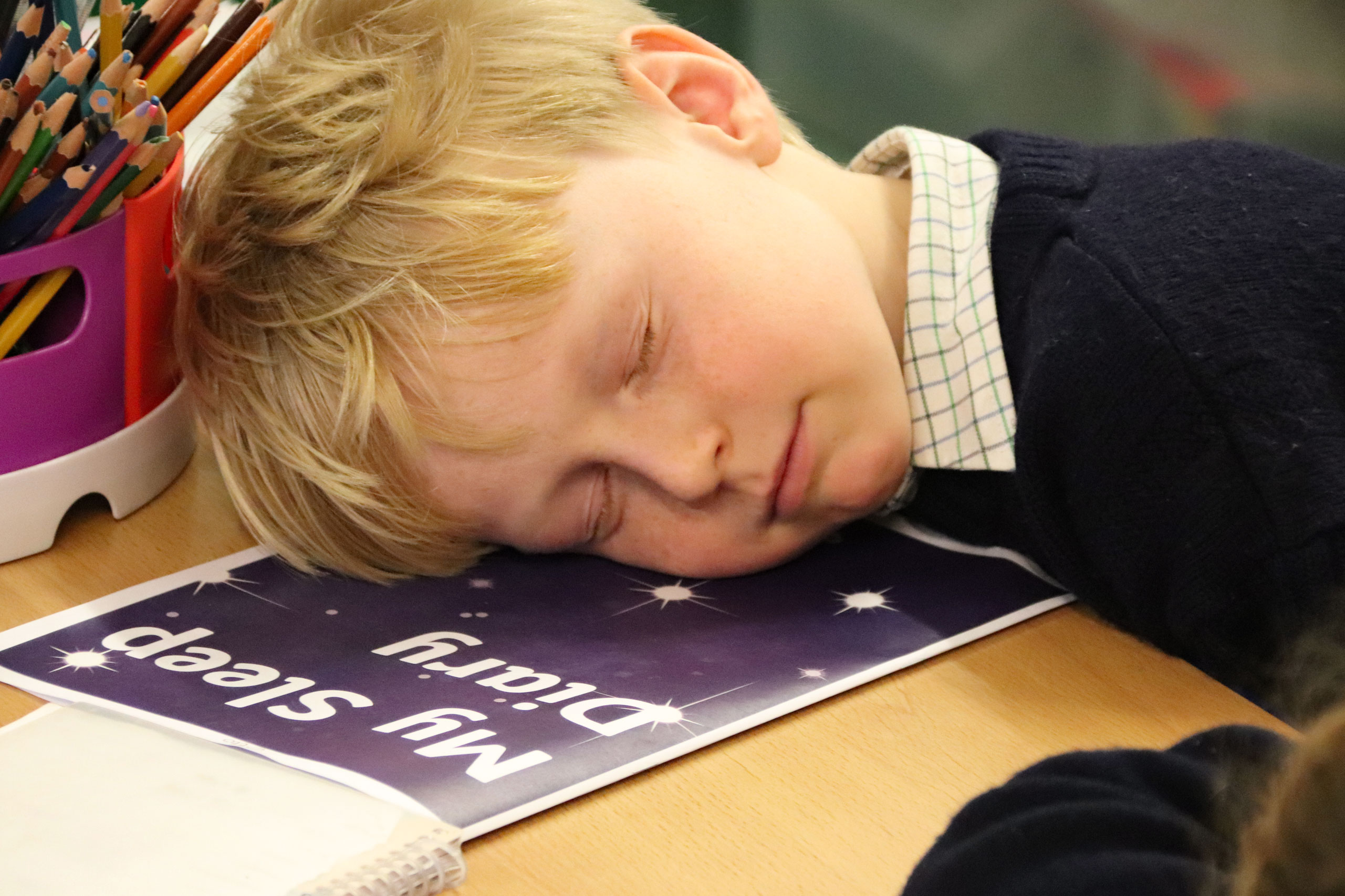
Pupils Ponder The Benefits Of A Good Night’s Sleep
22nd October 2024
Pupils at Highfield and Brookham could have been forgiven for having a quick nap in the classroom last week.
But rather than being put to sleep by the intricacies of cell division in biology, working out the angles of isosceles triangles in maths or conjugating verbs in French, the children got together to consider the importance of a good night’s sleep.
The occasion was Better Sleep Week, an initiative run by The Sleep Charity which aims to raise awareness around sleep and its impact on health and wellbeing.
Pre-prep children joined their older prep school peers for a series of sleep and nighttime-related activities, such as reading bedtime stories to the youngest children, chatting to them about their bedtime routines, putting teddies to bed, and listening to sleep podcasts or soothing music in The Beehive, the dedicated wellbeing hub, in readiness for a good night’s sleep.
The younger children were also tasked with identifying their favourite bedroom stories and creating posters about them while the older year groups sought inspiration from the NHS teen sleep guide before compiling a list of top tips for sleep which they could share with their inquisitive young sleep-task partners.
The children also put a lot of thought into their personal sleeping habits by producing their own sleep diaries, in which they could monitor how much sleep they got each night, how many times they woke during the night and why, and what time they tended to go to bed in the evening.
And the boarding community at Highfield and Brookham, approximately 100 children, were awarded extra dorm points for healthy bedtime routines which included turning the television off by 8pm and choosing an activity such as colouring or reading to help them wind down before lights off.
Suzannah Cryer, Head of Highfield and Brookham School, said she was delighted to get the whole school thinking about the importance of sleep.
“A good night’s sleep is essential for everyone, but particularly children who are still developing mentally, physically, socially and emotionally. Sleep helps our brains remember, memorise and analyse important information, skills which really improve performance at school.
“So getting the whole school together to consider how lack of sleep can really impact our moods and leave us feeling tired, upset or unable to concentrate, and the things we can do to combat that, was incredibly important. And the younger children learning on from the older ones made it extra special.”
